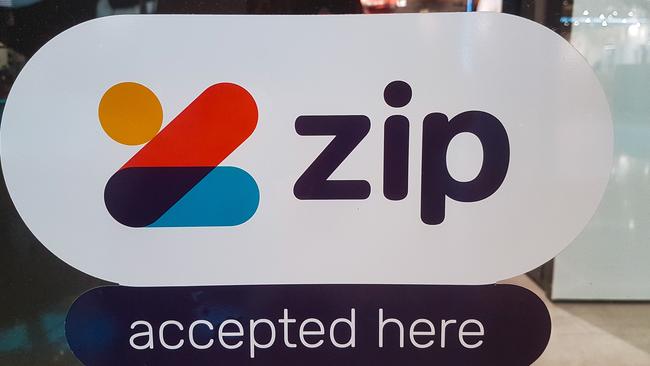Tough BNPL regulation required, but it’s a ‘fine balance’ for industry: ARCA
The Australian Retail Credit Association wants affordability checks and credit score reporting on all BNPL accounts.

Affordability checks and credit score reporting should occur on all buy now, pay later accounts to protect against consumer harm, with the proviso that smaller-ticket purchases have a slightly simpler set of regulations.
That’s the view of the Australian Retail Credit Association, which represents the nation’s largest credit reporting agencies, major banks, specialist consumer finance companies and mutual lenders. Combined, ARCA’s members account for more than 95 per cent of all regulated consumer lending in Australia.
In a yet-to-be-published submission to Treasury’s review, ARCA calls for BNPL to be regulated as a credit product under the National Credit Code and for providers to hold a licence.
However, the industry body urges Treasury to consider less onerous customer affordability tests or verification of expenses for smaller transactions or BNPL limits, that may sit below $2000, as long as the customer does not have multiple BNPL accounts.
“The absence of regulation has unfortunately led to a situation where you are seeing greater degrees of consumer harm happening within this sector and that’s what we really want to see being tackled now through this process,” said ARCA chief executive Elsa Markula.
“A big concern among credit reporting bodies is the absence of data for buy now, pay later customers and the inability to have a true line of sight into what is going on … It’s really trying to get that fine balance between making sure you’re protecting those consumers who will have multiple BNPL accounts across many providers, but also not making it too difficult for industry.”

ARCA’s submission said regulation should not “inhibit the efficient and responsible provision of credit”, and suggested there may be an opportunity to tailor rules covering affordability and responsible lending obligations for smaller-value BNPL accounts or lower-risk credit products.
“For smaller BNPL because of the need to do it efficiently and to give credit providers some certainty maybe there’s some opportunity to … be a little bit more specific to say you need to do this, but you don’t need to necessarily verify all the customer’s living expenses,” said Michael Blyth, ARCA’s policy and advocacy general manager.
Submissions closed in late December and the government is assessing the best model – of three proposed – to move ahead with on regulating the BNPL sector.
Despite some differing views among its members, ARCA supports Treasury’s third regulatory model which advocates treating BNPL in the same way as products such as home loans, credit cards and personal loans. That requires players hold a licence and conduct responsible lending checks to assess whether a customer can afford repayments.
BNPL products are currently exempt from credit regulation, as they don’t charge interest and typically involve shorter-term borrowing periods. While consumers don’t typically pay interest on BNPL products, hefty charges – sometimes in the order of 4 per cent of a transaction’s value – are levied on retailers and merchants.
The debate about regulation comes amid difficult and choppy trading conditions for BNPL operators, as interest rates rise and investors demand a path to profitability.
ASX-listed Laybuy Group remained in a trading halt on Tuesday pending an announcement on its application to de-list from the bourse.
Commonwealth Bank is endorsing a model for BNPL regulation that is Treasury’s middle-ground option, but the nation’s biggest home lender also wants credit score reporting and other safeguards included. The second option being proposed requires players obtain and keep a credit licence, and abide by responsible lending rules that would be specific to BNPL products.
That would see firms determine if instalment products were unsuitable for consumers. The first option proposed by Treasury would amend the Credit Act to impose an industry-specific requirement for BNPL providers to check that a product was not unaffordable before it was offered. That model was initially the preferred option of Afterpay, owned by US company Block.
Other markets, including the UK and New Zealand, are also pursuing regulation of the BNPL sector. In November, the NZ government proposed rules that would require BNPL players conduct affordability checks on customers before agreeing to a loan. The requirements would only apply to loans of more than $NZ600 ($555).

Mr Blyth said ARCA did not back NZ’s model as it implied no affordability checks under that threshold. “Whether it’s a smaller or larger BNPL (account), there should always be an affordability assessment,” he said.
“It should take into account the customer’s other liabilities and just in relation to smaller (BNPL accounts) maybe those affordability assessments can be simplified.”
ARCA called for Treasury to apply an “appropriate transitional period” to any regulation imposed, including allowing 12 months for providers to contribute credit data and information.
The industry body did not go as far as Westpac in calling for regulation to disallow consumers to pay BNPL debts with credit cards.
“I wonder whether it’s actually necessary to go so far as to strictly prohibit the use of credit cards now, and whether it might actually just be a natural consequence of regulation,” Ms Markula said.
ARCA believes the second regulatory option proposed by Treasury could cause issues if the corporate regulator and Australian Financial Complaints Authority have to administer different regimes. It may also prove confusing for consumers.
ARCA’s submission cited a CreditSmart survey of 1642 Australians that found 49 per cent had participated in BNPL and those users, on average, had 1.6 instalment accounts apiece.
Assistant Treasurer Stephen Jones late last year said that the BNPL sector should be brought within relevant credit laws.
“We want to ensure that where these products are being offered, they’re being offered safely to consumers,” Mr Jones said. “We have a template for regulating credit.”








To join the conversation, please log in. Don't have an account? Register
Join the conversation, you are commenting as Logout